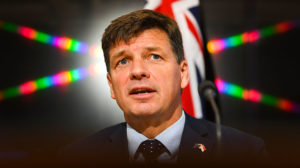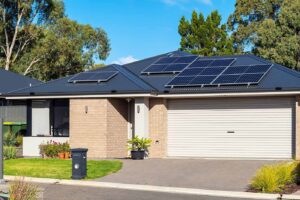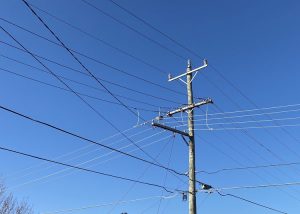The political rhetoric about climate and clean energy in the domestic market may suggest Australia is making huge leaps backwards, but things are looking a little different on the international arena.
 Over the weekend, long-serving Canberra bureaucrat Howard Bamsey (pictured right) was appointed executive director of the $100 billion Green Climate Fund, one of the crucial bodies in international climate finance, and he has been given the role of steering the fund out of its troubled beginnings.
Over the weekend, long-serving Canberra bureaucrat Howard Bamsey (pictured right) was appointed executive director of the $100 billion Green Climate Fund, one of the crucial bodies in international climate finance, and he has been given the role of steering the fund out of its troubled beginnings.
In the meantime, Australia’s biggest investment bank, Macquarie Group, is said to be one of two bidders short-listed to take control of the UK’s Green Investment Bank, a purchase that will be priced at around £4 billion ($A6.5 billion) that would thrust Macquarie centre stage in the private green finance market.
The two developments suggest that Australia is not totally immune to, or divorced from, international developments on climate change and renewables energy, which are now moving at rapid speed.
Over the weekend, a crucial agreement was reached to reduce emissions from hydrofluorocarbon (HFC) – a particularly potent greenhouse gas – by 85 per cent at the Montreal Protocol meeting held in Kigali, Rwanda.
The move, hailed by the Coalition government, is expected to knock 0.5°C off anticipated global temperature rises, and comes as Australia is rushing to ratify the Paris agreement before the next major climate talks begin in Marrakesh, Morocco, in just over two weeks.
The Paris agreement has been ratified by more than 60 countries representing more than 60 per cent of global emissions, meaning it will come into force in the next few weeks, four years earlier than anticipated when the deal was reached last December.
Australia’s ratification – if it occurs before the Marrakesh meeting – will mean that it can play a key role in talks designed about how to bring that pact into force, notably setting the platform for countries to increase their climate targets over and above those that were brought to the table in Paris.
As it is, Australia will face tough questioning over its Paris commitments before and during the Marrakesh talks, with UN parties posing a list of difficult questions over its targets and commitments, just as it did two years ago in the lead up to Paris.
It is understood that both foreign minister Julie Bishop and energy and environment minister Josh Frydenberg will attend the Marrakesh talks.
But there are other signs – apart from the appointment of Bamsey and indirectly the interest of Macquarie, that Australia may be developing one language on climate change for the international stage and another for the toxic and partisan domestic market.
While the local rhetoric has focused on “cost and security” on domestic energy policy, Turnbull last week acknowledged that Australia’s Paris climate commitment will also be a major factor.
“We need to keep the lights on. We need energy to be affordable—not the most expensive in Australia, as it is in South Australia. And we need to meet our emissions reduction target,” Turnbull said in Question Time. Analysts say that last phrase in important.

This is the missing link between the Coalition’s attack on South Australia and other Labor states renewable energy targets, and the shortfall between its own policies and its Paris commitments.
And on that point, the language around next year’s review of climate policies has also subtlety changed, moving on from a mere “sit rep” – situation report where current policies are merely assessed – to a likely review of what new policies may actually be needed to meet those Paris targets.
The appointment of Bamsey, however, suggests Australia remains kean to play a prominent role. Bamsey has been one of Australia’s leading climate change negotiators, is a former deputy secretary of the department of climate change, a former special envoy on climate change and a former head of the Australian Greenhouse Office.
He was also on the government’s task force on energy efficiency and notably said, when former prime minister Kevin Rudd signed the Kyoto Treaty in 2007, that it was like “coming up from drowning”.
The GCF is key because it will be the means through which developed countries will funnel finance to the developing world, and is one of the key mechanisms of the Paris deal. It will be Bamsey’s job to convince wealthy countries to honour their commitments,” Climate Change News reported.
So, far the fund has been provided with $US10 billion in donations, and is supposed to act as a distribution point for $100 billion a year by 2020.

But in the year since the fund began approving projects, less than one twentieth of that has been committed and just $US5.4 million has actually been disbursed, leading to concerns in Paris last year that it was dysfunctional.
Bamsey is believed to have won the position ahead of 400 other candidates. Last year, in the Conversation, he wrote that the GCF “must succeed and be seen to succeed to keep developing nations in the game. Otherwise the future of international cooperation on climate change will be in jeopardy.”
Bamsey joins another Australian, Ewen McDonald, who is co-chair of the board.
As for Macquarie, it has has been a relatively active investor in clean energy projects overseas, but renewable energy still accounts for just two per cent of the asset base of its main investment vehicle, the
The GIB was created in 2012 by the UK government to invest in UK-based green infrastructure projects and mobilise private sector capital to co-invest.
It has invested £2.7 billion, and brought together £11 billion in total investment, in offshore wind, energy efficiency, waste and bioenergy, and onshore renewables.






